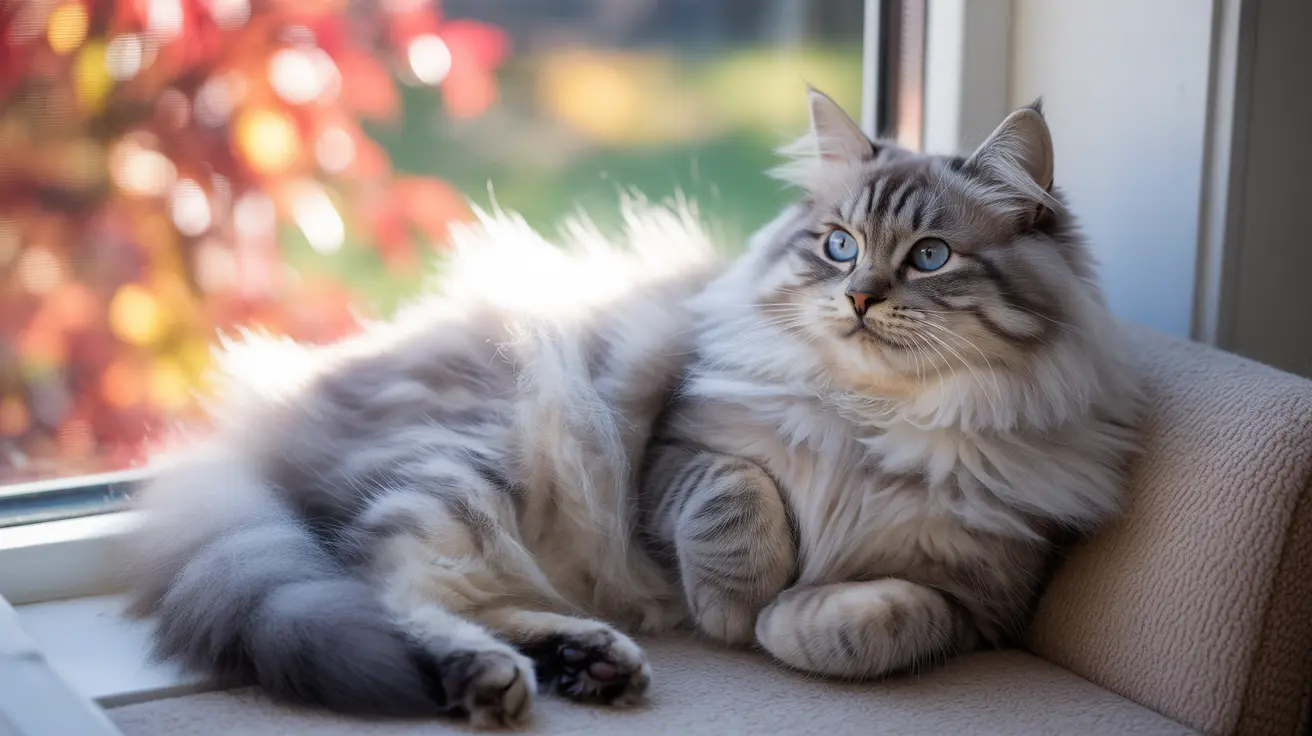The Physical Impact of Chronic Stress on Cats
Chronic stress triggers a cascade of physiological responses in cats that can severely impact their health. When cats experience prolonged stress, their bodies continuously release stress hormones like cortisol and adrenaline, which can lead to serious health complications over time.
The immune system becomes particularly vulnerable under chronic stress, leaving cats more susceptible to infections and diseases. This weakened immune response can transform typically minor health issues into serious concerns.
Life-Threatening Conditions Triggered by Stress
Urinary System Complications
One of the most dangerous stress-related conditions in cats is Feline Lower Urinary Tract Disease (FLUTD). Stress can trigger urinary blockages, particularly in male cats, which can become fatal within 24-48 hours if left untreated. Signs include frequent trips to the litter box, straining to urinate, or crying out while attempting to urinate.
Cardiovascular Issues
Stress can significantly impact a cat's heart health, potentially leading to:
- Increased blood pressure
- Irregular heart rhythms
- Heightened risk of heart disease
- Potential heart failure in severe cases
Metabolic Disorders
Stress-induced appetite changes can lead to severe health complications:
- Hepatic lipidosis (fatty liver disease) from sudden decreased eating
- Diabetes risk from stress-related overeating
- Rapid weight loss leading to organ dysfunction
Warning Signs That Stress Is Becoming Life-Threatening
Cat owners should watch for these critical warning signs:
- Complete food or water refusal for more than 24 hours
- Lethargy or collapse
- Difficulty breathing
- Unable to urinate despite multiple attempts
- Severe behavior changes
- Excessive grooming leading to bald patches or wounds
Prevention and Management Strategies
To protect your cat from stress-related health risks:
- Maintain consistent daily routines
- Provide multiple safe hiding spaces
- Keep litter boxes clean and accessible
- Use calming pheromone products
- Create vertical spaces for escape routes
- Monitor and manage multi-cat household dynamics
When to Seek Emergency Care
Don't wait to contact your veterinarian if you notice:
- Any signs of urinary blockage
- Complete loss of appetite for more than 24 hours
- Rapid breathing or panting
- Collapse or extreme weakness
- Unusual aggression or extreme behavioral changes
Frequently Asked Questions
Can a cat die from stress, and how does chronic stress impact their health?
While direct death from stress alone is rare, chronic stress can lead to life-threatening conditions such as urinary blockages, heart problems, and severe illness due to immune system suppression. Long-term stress can significantly shorten a cat's lifespan through its effects on multiple organ systems.
What are the signs of stress in cats that could indicate serious health risks?
Critical signs include cessation of eating or drinking, urinary issues, excessive grooming, aggressive behavior changes, hiding more than usual, and physical symptoms like rapid breathing or lethargy. These signs warrant immediate veterinary attention.
How does stress cause life-threatening conditions like urinary blockages or fatty liver in cats?
Stress triggers physiological responses that can cause urethral spasms leading to blockages, and stress-induced appetite loss can force the body to process fat stores rapidly, overwhelming the liver and potentially causing fatal hepatic lipidosis.
What practical steps can I take to reduce my cat's stress and prevent related health problems?
Create a stable environment with regular routines, provide multiple resources (litter boxes, food stations, hiding spots), use feline pheromone products, and maintain regular veterinary check-ups. Address inter-cat conflicts promptly and minimize environmental changes.
How does stress contribute to long-term illnesses such as heart disease or feline cognitive dysfunction?
Chronic stress elevates blood pressure and stress hormones, contributing to heart disease over time. It can also accelerate aging processes in the brain, potentially leading to cognitive dysfunction. Regular veterinary monitoring can help catch these conditions early.






